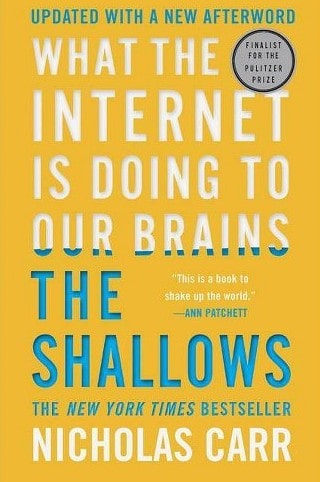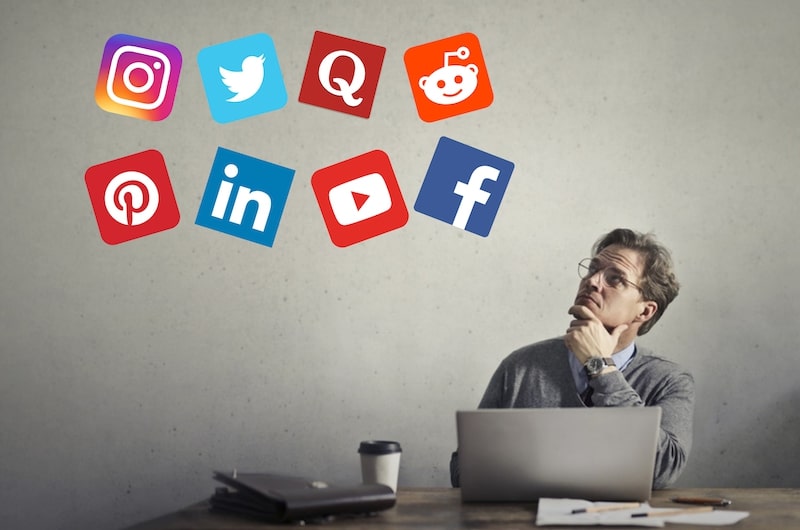We live in an era where access to information has never been easier. It’s similar to the mechanical press revolution brought by Gutenberg centuries ago. Before this invention, books needed to be copied by hand. This process took very long, limiting the amount of available books dramatically and making them luxury items reserved for monasteries and the wealthy. With the press, books could be produced much faster, and the information they contained was made available to a much wider audience.
While I’m not an expert in history, it’s easy to relate this newfound wide-spread access to information to the great achievements in science, arts, and philosophy that followed. At least, we’re left to wonder if the great achievements of the Enlightenment period would have been possible were it not for the press (among other factors, of course).
Just like we had the press revolution in the past, and there are no doubts about the improvements that books brought to society, we have a new information revolution with the Internet. If the press freed books from the limitations of hand copying, the Internet has freed information from books, from a material medium. Rather than being limited to the pages of a book, information now travels as electric impulses and electromagnetic waves freely around the globe.

However, it’s yet to soon to be able to properly foretell the effects that this new medium, the Internet, will have on us and on our society. While its positive effects are undeniable, most critics of the Internet are discarded as mere romanticism of the past.
Instead of focusing on the positive effects of the Internet, we’ll deal with the negative effects. Particularly on how the Internet affects the way we think and process information. Most of this content is derived from the book: The Shallows: What the Internet is doing to our brains by Nicholas Carr.
The Internet, just as a tool
It’s tempting to consider the Internet just as a tool and limit its critic to what, rather than how. In this sense, we could say that the Internet can be used for “good things” like Wikipedia and “bad things” like illicit weapons commerce. It’s all about the content. Just like we can browse the web to read the best literature, we can use it to clutter our minds with paparazzi.
The medium is the message.
However, there’s a more important aspect than the mere content of the internet. It’s about how the Internet presents information. And this how is independent of the what. On the rest of this blog post, we’ll focus on the how. That is on the Internet as a medium.
Internet: the bad
The Internet and our brains
The most common idea is that our brains are fixed from a certain age. After the first years of our development, there aren’t any great changes in the brain. Kids learn so fast, yet for adults, it gets increasingly harder with age.
However, more recent scientific discoveries present a different reality. It’s the concept of neuroplasticity. In simple terms, our brain’s neuron configuration is affected by our thinking. Certain neurological “paths” are reinforced as we perform tasks repeatedly, while older “paths” that are left unused become dimmer.
With Internet browsing, we’re made to perform certain tasks repeatedly. Clicking on links from different sources, multi-tasking, checking emails on notification, interacting with social media. And these tasks mold our brains in a certain way. In fact, we’re being trained by the Internet to be distracted.
While this is a strong assertion, as time passes more and more evidence that support it arises. Internet addiction, people verifying their social media accounts or their e-mails every few minutes. The commonality is that we perform certain tasks almost automatically, even feeling an urge to perform them. Coming back to analyzing the Internet as a medium, while online, we don’t read anymore, we skim.
An ecosystem of distraction

Many times multi-tasking is mentioned as one of the positive effects of computers and the Internet. We’re able, while performing any single task, to answer e-mails, read the news, keep in touch with friends and family at the same time. On the other hand, we could ask, why on earth would we want that?
We have all heard about the importance of focusing on any single task for long periods of time (you can check Deep Work by Cal Newport). Great thinkers, mathematicians, scientists. All have in common that astounding ability to focus on a single problem for long periods of time. Even in sports, there’s a special state known as “The Zone“ that correlates with high-performance. This state, once again, is characterized by strong concentration.
Yet on the Internet, we’re bombarded by information (and not only). It’s the very essence of it, the Internet is inter-connected. On any single page, there are ads, links to related (or unrelated) content, and different sorts of media (images, videos, audio).
We have all experienced it, we want to concentrate on any single task and we feel that urge of checking social media or browse funny videos. Or perhaps we’re researching any specific topic, yet with more and more links we’re diverted to different, maybe unrelated, topics. Truth is, the Internet is not made to help us enter The Zone while we’re working.
Social media and attention
Social media is a special beast on its own. It is perhaps the most effective at taking hold of our attention. On one hand, it deals with human interactions which are deeply ingrained in our psychology. Secondly, they compete for our attention and they’re very good at it.
The revenue of social media is directly correlated with the time we spent on them and the more interactions we have on them. Having become almost omnipresent, they’re very resourceful at reaching their goals. Not only do they have the resources to hire the best engineers and specialists to get our attention, they have access to big data.
Simply put, big data is just a lot of information. What’s special about it, is that this wealth of information gives a reliable insight into what we do, how we do it, and why we do it. Not only is it bothersome that tech companies have detailed accounts of our personal information, it’s especially disturbing since we can’t say that they have our best interests in mind.
As a final addendum, social media has also been correlated with several negative psychological effects. With people using more social media being less happy to increased levels of depression and even suicide on teenagers and young adults. There’s a recent documentary on the subject: The Social Dilemma.
In conclusion
In the future, the Internet will perhaps emerge as the most defining invention of our society today. While we are the direct beneficiaries of this new highway of information, it’s important to realize that the Internet also affects how we process information. Talking about its negative effects, we can conclude that it can undermine our ability to concentrate. If we see tools as passive elements that we can use to reach our goals, we have to be careful with the Internet as a different kind of tool that can actively and very effectively change us.
